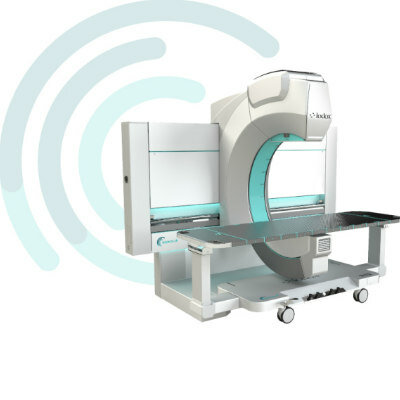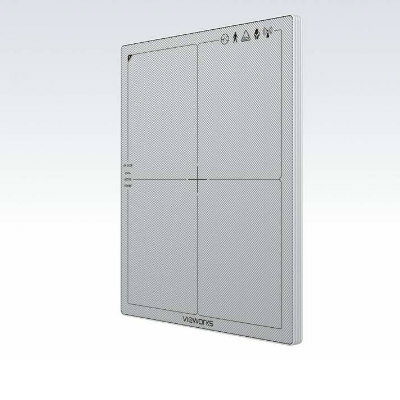New Scoring Systems Increase Accuracy of AI-Generated Radiology Reports
|
By MedImaging International staff writers Posted on 07 Aug 2023 |

Artificial intelligence (AI) tools that efficiently produce detailed narrative reports of CT scans or X-rays can significantly lighten the workload of busy radiologists. These AI reports go beyond simple identification of abnormalities and instead provide complex diagnostic information, detailed descriptions, nuanced findings, and appropriate degrees of uncertainty, similar to how human radiologists describe scan results. While several AI models capable of generating such detailed medical imaging reports have emerged, automated scoring systems meant to assess these tools are proving to be less effective at gauging their performance, according to a new study.
In the study, researchers at Harvard Medical School (Boston, MA, USA) tested various scoring metrics on AI-generated narrative reports and had six human radiologists read these reports. The analysis revealed that automated scoring systems performed poorly compared to human radiologists when it came to evaluating AI-generated reports. These systems misinterpreted and even missed significant clinical errors made by the AI tool. Ensuring the reliability of scoring systems is crucial for AI tools to continue improving and gaining clinicians' trust. However, the metrics tested in the study failed to reliably identify clinical errors in the AI reports, highlighting an urgent need for improvement and the development of high-fidelity scoring systems that accurately monitor tool performance.
In order to create better scoring metrics, the research team designed a new method called RadGraph F1 for evaluating the performance of AI tools generating radiology reports from medical images. Additionally, they created a composite evaluation tool called RadCliQ, which combines multiple metrics to produce a single score that more closely aligns with how a human radiologist would assess an AI model's performance. Using these new scoring tools, the researchers evaluated several state-of-the-art AI models and found a notable gap between their actual scores and the top possible scores.
Going forward, the researchers envision building generalist medical AI models capable of performing various complex tasks, including solving novel problems. Such AI systems could effectively communicate with radiologists and physicians about medical images, assisting in diagnosis and treatment decisions. The team also aims to develop AI assistants that can explain imaging findings directly to patients using everyday language, enhancing patient understanding and engagement. Ultimately, these advancements could revolutionize medical imaging practices, improving efficiency, accuracy, and patient care.
“Accurately evaluating AI systems is the critical first step toward generating radiology reports that are clinically useful and trustworthy,” said study senior author Pranav Rajpurkar, assistant professor of biomedical informatics in the Blavatnik Institute at HMS. “By aligning better with radiologists, our new metrics will accelerate development of AI that integrates seamlessly into the clinical workflow to improve patient care,”
Related Links:
Harvard Medical School
Latest General/Advanced Imaging News
- New AI Method Captures Uncertainty in Medical Images
- CT Coronary Angiography Reduces Need for Invasive Tests to Diagnose Coronary Artery Disease
- Novel Blood Test Could Reduce Need for PET Imaging of Patients with Alzheimer’s
- CT-Based Deep Learning Algorithm Accurately Differentiates Benign From Malignant Vertebral Fractures
- Minimally Invasive Procedure Could Help Patients Avoid Thyroid Surgery
- Self-Driving Mobile C-Arm Reduces Imaging Time during Surgery
- AR Application Turns Medical Scans Into Holograms for Assistance in Surgical Planning
- Imaging Technology Provides Ground-Breaking New Approach for Diagnosing and Treating Bowel Cancer
- CT Coronary Calcium Scoring Predicts Heart Attacks and Strokes
- AI Model Detects 90% of Lymphatic Cancer Cases from PET and CT Images
- Breakthrough Technology Revolutionizes Breast Imaging
- State-Of-The-Art System Enhances Accuracy of Image-Guided Diagnostic and Interventional Procedures
- Catheter-Based Device with New Cardiovascular Imaging Approach Offers Unprecedented View of Dangerous Plaques
- AI Model Draws Maps to Accurately Identify Tumors and Diseases in Medical Images
- AI-Enabled CT System Provides More Accurate and Reliable Imaging Results
- Routine Chest CT Exams Can Identify Patients at Risk for Cardiovascular Disease
Channels
Radiography
view channel
Novel Breast Imaging System Proves As Effective As Mammography
Breast cancer remains the most frequently diagnosed cancer among women. It is projected that one in eight women will be diagnosed with breast cancer during her lifetime, and one in 42 women who turn 50... Read more
AI Assistance Improves Breast-Cancer Screening by Reducing False Positives
Radiologists typically detect one case of cancer for every 200 mammograms reviewed. However, these evaluations often result in false positives, leading to unnecessary patient recalls for additional testing,... Read moreMRI
view channel
PET/MRI Improves Diagnostic Accuracy for Prostate Cancer Patients
The Prostate Imaging Reporting and Data System (PI-RADS) is a five-point scale to assess potential prostate cancer in MR images. PI-RADS category 3 which offers an unclear suggestion of clinically significant... Read more
Next Generation MR-Guided Focused Ultrasound Ushers In Future of Incisionless Neurosurgery
Essential tremor, often called familial, idiopathic, or benign tremor, leads to uncontrollable shaking that significantly affects a person’s life. When traditional medications do not alleviate symptoms,... Read more
Two-Part MRI Scan Detects Prostate Cancer More Quickly without Compromising Diagnostic Quality
Prostate cancer ranks as the most prevalent cancer among men. Over the last decade, the introduction of MRI scans has significantly transformed the diagnosis process, marking the most substantial advancement... Read moreUltrasound
view channel
Deep Learning Advances Super-Resolution Ultrasound Imaging
Ultrasound localization microscopy (ULM) is an advanced imaging technique that offers high-resolution visualization of microvascular structures. It employs microbubbles, FDA-approved contrast agents, injected... Read more
Novel Ultrasound-Launched Targeted Nanoparticle Eliminates Biofilm and Bacterial Infection
Biofilms, formed by bacteria aggregating into dense communities for protection against harsh environmental conditions, are a significant contributor to various infectious diseases. Biofilms frequently... Read moreNuclear Medicine
view channel
New SPECT/CT Technique Could Change Imaging Practices and Increase Patient Access
The development of lead-212 (212Pb)-PSMA–based targeted alpha therapy (TAT) is garnering significant interest in treating patients with metastatic castration-resistant prostate cancer. The imaging of 212Pb,... Read moreNew Radiotheranostic System Detects and Treats Ovarian Cancer Noninvasively
Ovarian cancer is the most lethal gynecological cancer, with less than a 30% five-year survival rate for those diagnosed in late stages. Despite surgery and platinum-based chemotherapy being the standard... Read more
AI System Automatically and Reliably Detects Cardiac Amyloidosis Using Scintigraphy Imaging
Cardiac amyloidosis, a condition characterized by the buildup of abnormal protein deposits (amyloids) in the heart muscle, severely affects heart function and can lead to heart failure or death without... Read moreImaging IT
view channel
New Google Cloud Medical Imaging Suite Makes Imaging Healthcare Data More Accessible
Medical imaging is a critical tool used to diagnose patients, and there are billions of medical images scanned globally each year. Imaging data accounts for about 90% of all healthcare data1 and, until... Read more
Global AI in Medical Diagnostics Market to Be Driven by Demand for Image Recognition in Radiology
The global artificial intelligence (AI) in medical diagnostics market is expanding with early disease detection being one of its key applications and image recognition becoming a compelling consumer proposition... Read moreIndustry News
view channel
Bayer and Google Partner on New AI Product for Radiologists
Medical imaging data comprises around 90% of all healthcare data, and it is a highly complex and rich clinical data modality and serves as a vital tool for diagnosing patients. Each year, billions of medical... Read more





















